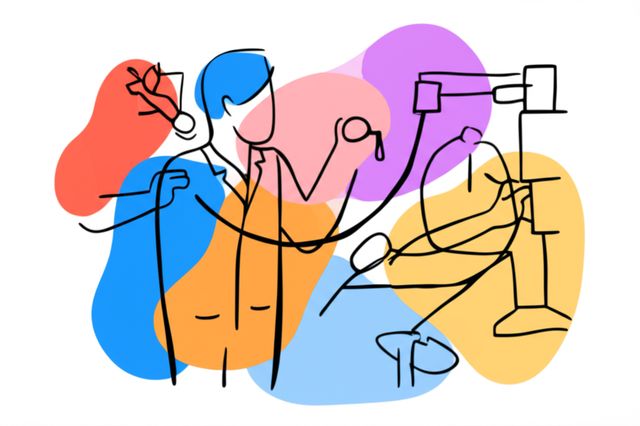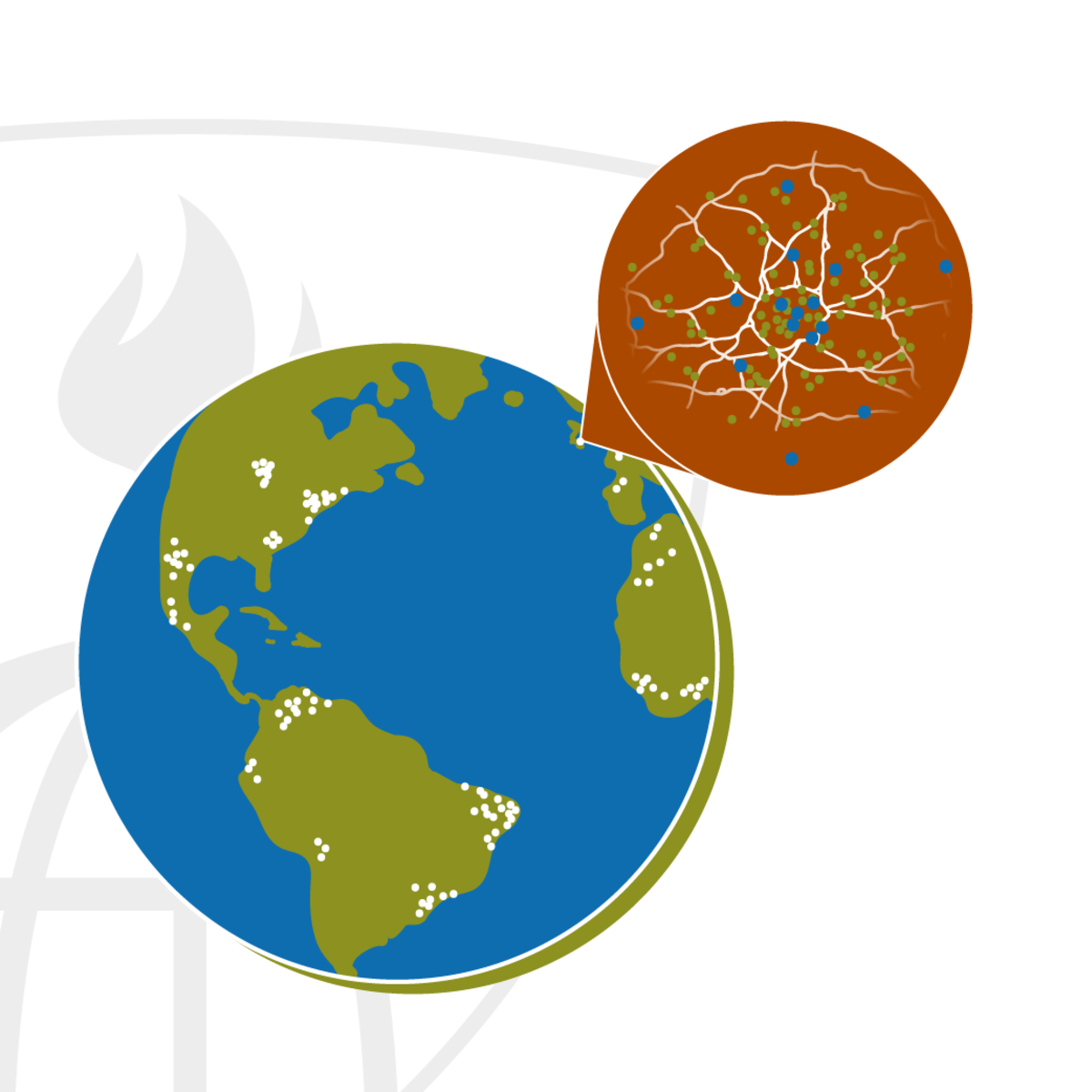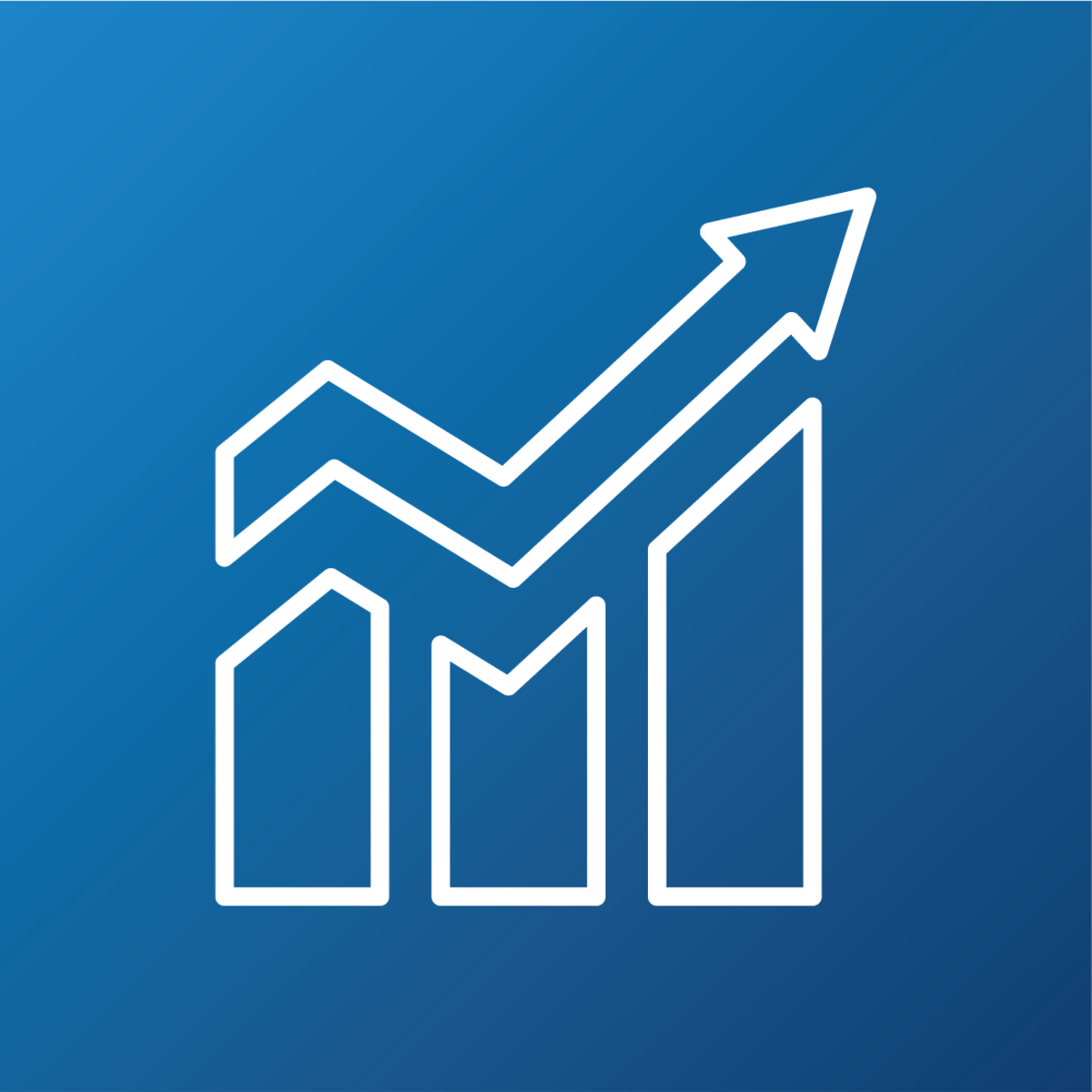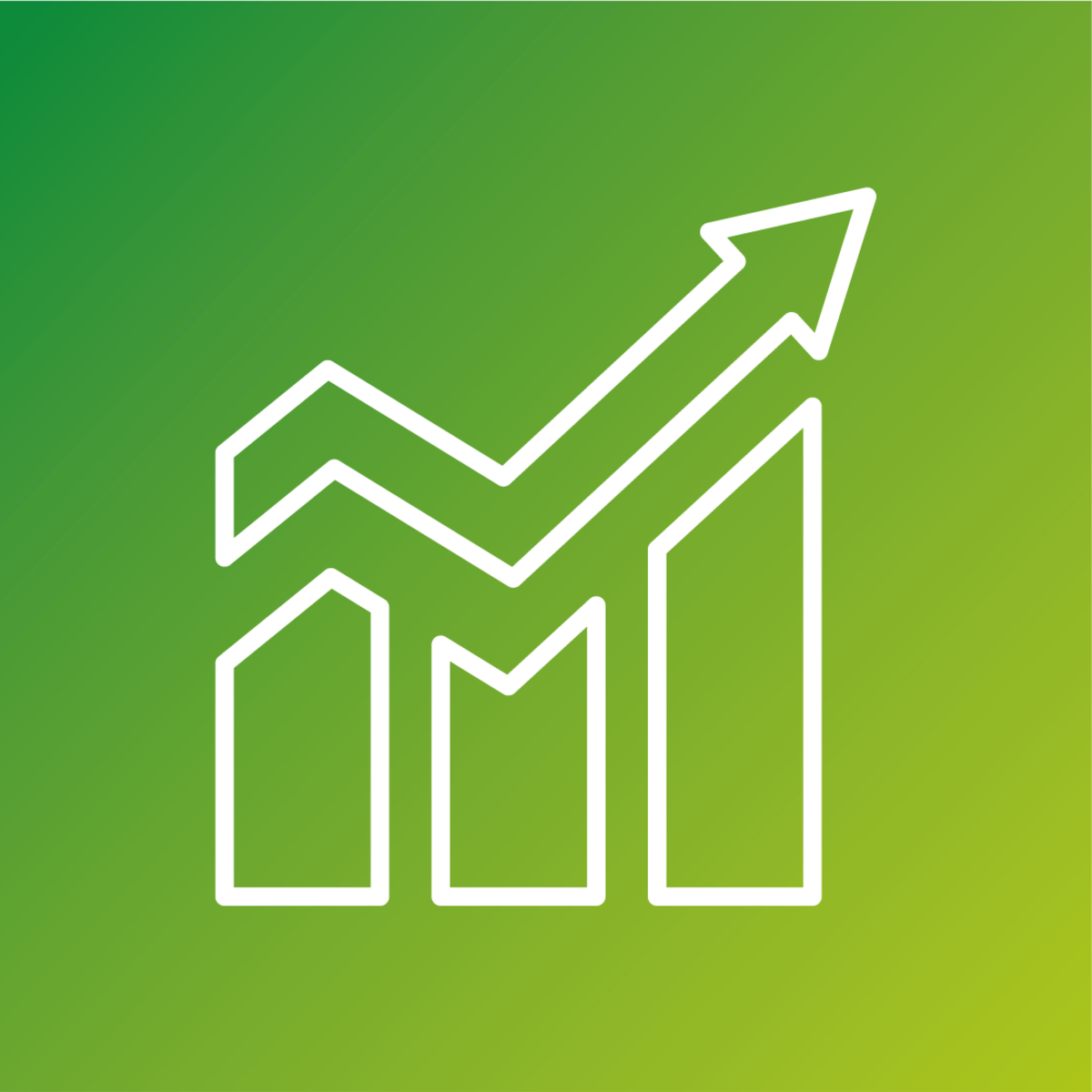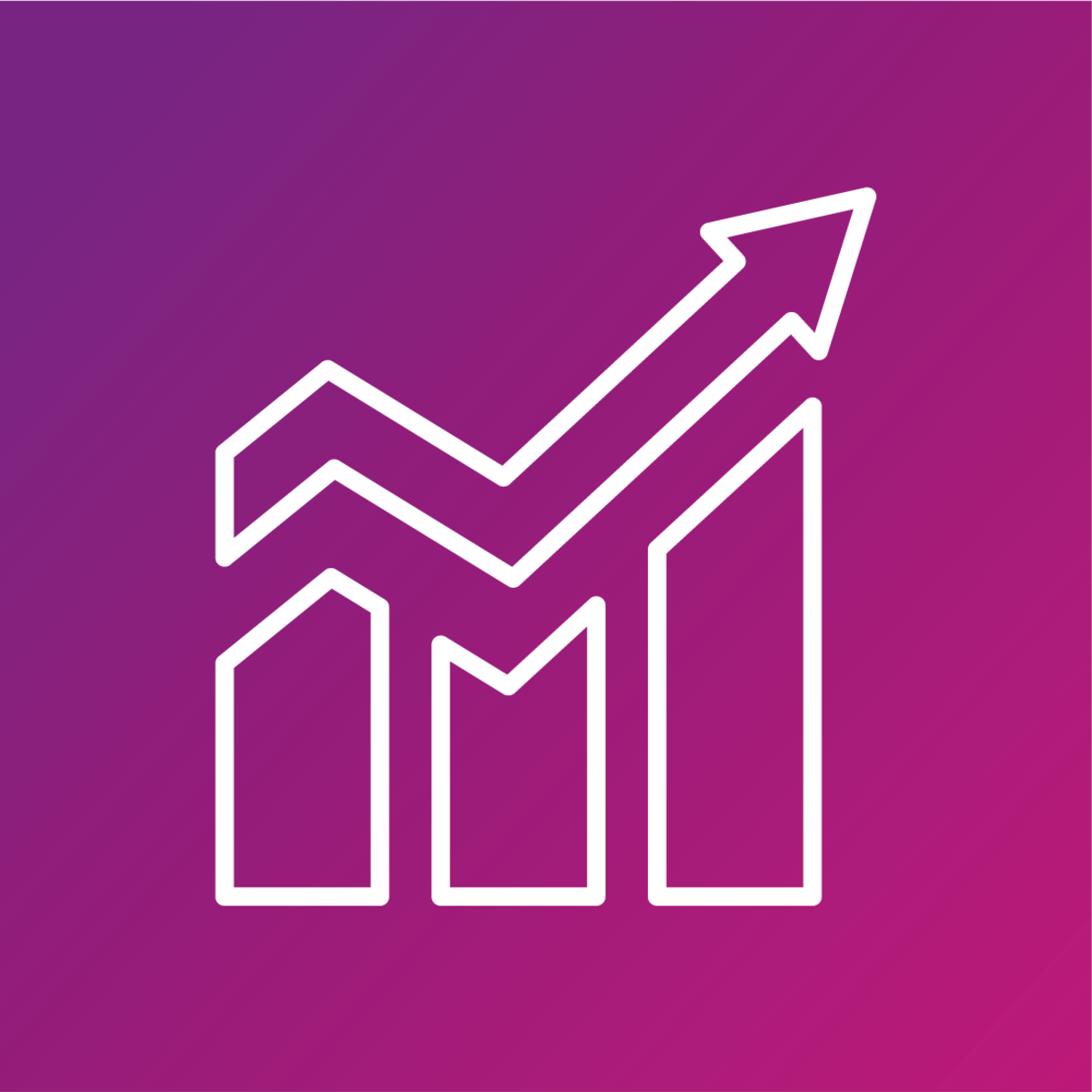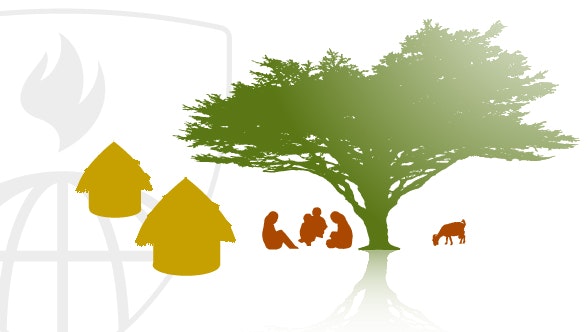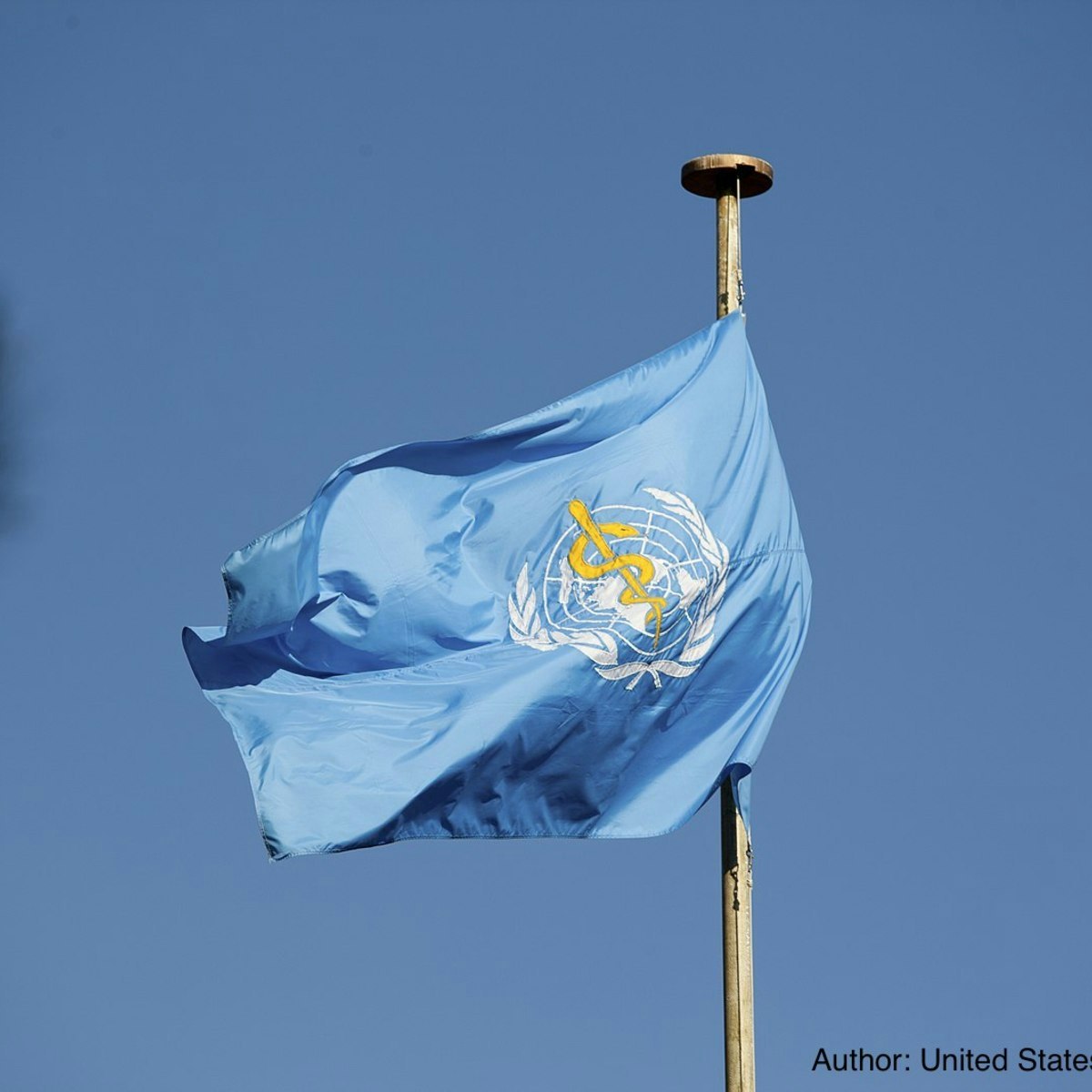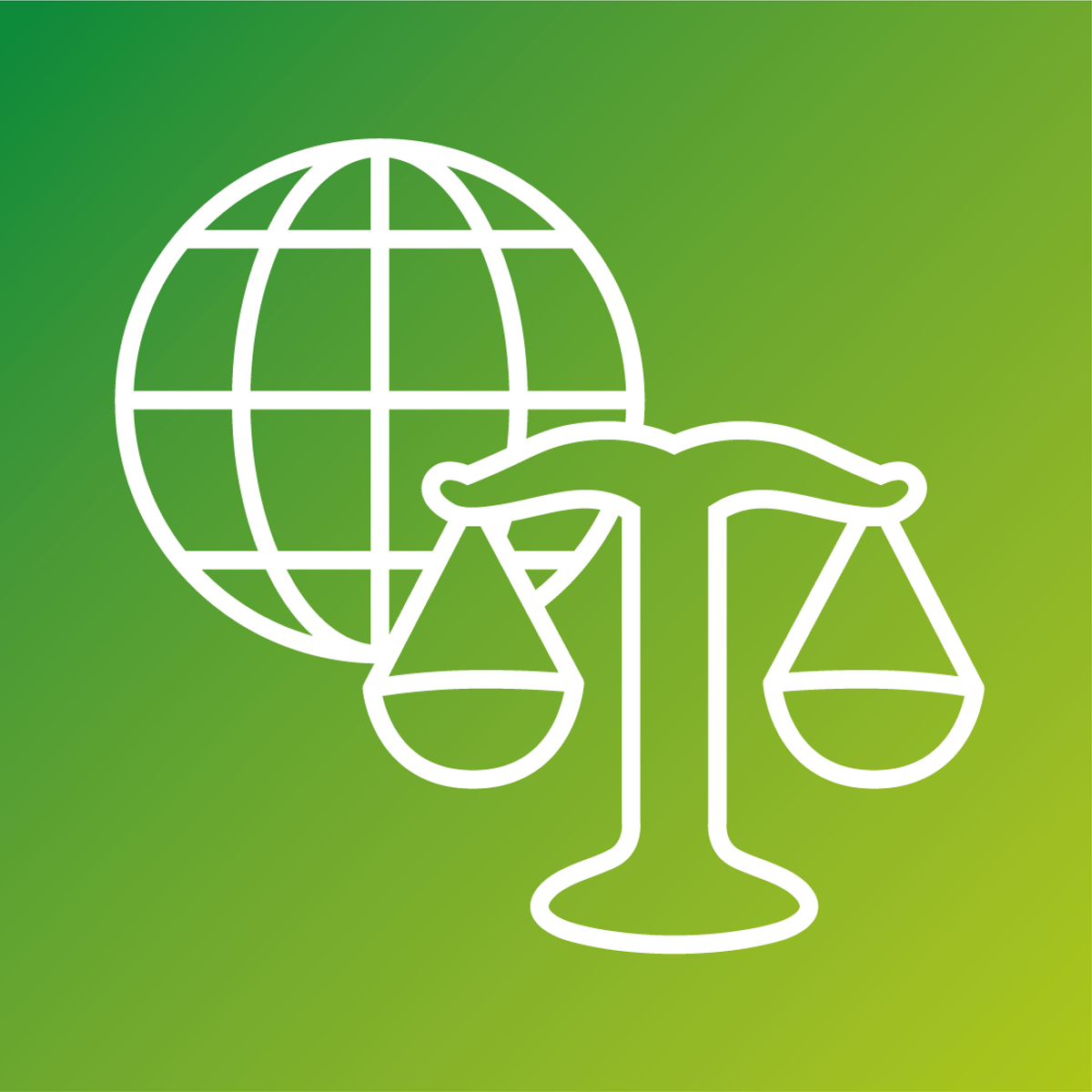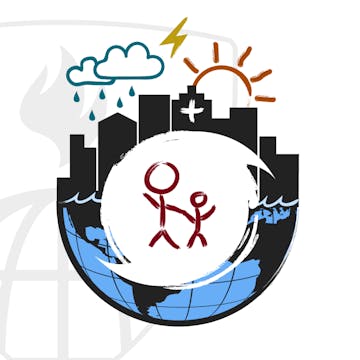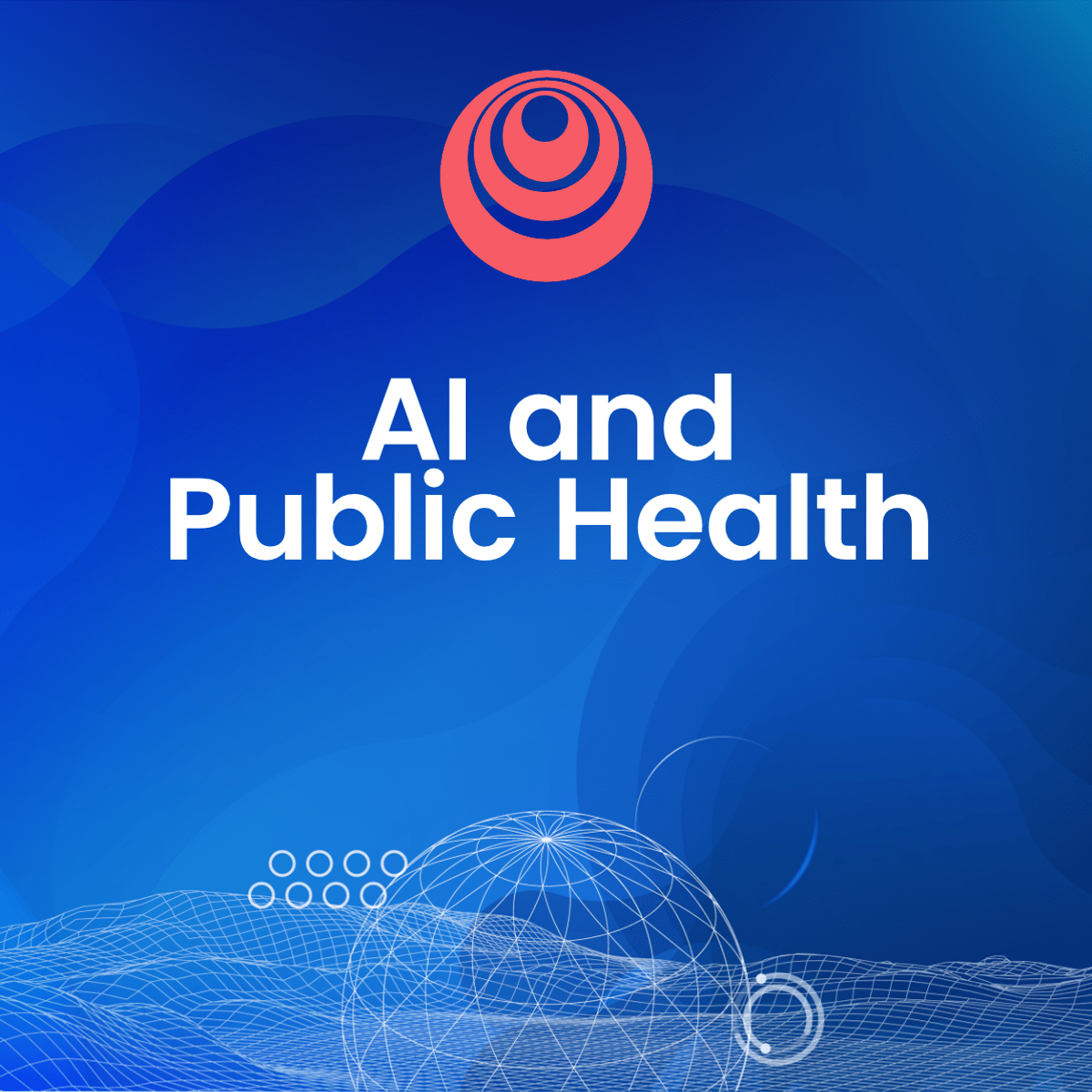Public Health Physician
Public Health Physician: A Career Focused on Community Well-being
A Public Health Physician is a medical doctor who specializes in protecting and improving the health of entire populations or communities, rather than focusing solely on individual patient treatment. Their work centers on preventing disease, prolonging life, and promoting health through organized community efforts, policy development, and data-driven strategies. This field bridges clinical knowledge with population-level perspectives to address health challenges systemically.
Working as a Public Health Physician can be deeply engaging. You might find yourself investigating disease outbreaks, designing programs to encourage healthy behaviors, or advising policymakers on legislation to create healthier environments. The ability to impact the health of thousands, or even millions, of people through upstream interventions offers a unique and rewarding career path for those passionate about medicine and societal well-being.
Introduction to Public Health Physician
This section introduces the role, clarifies its distinction from clinical practice, outlines key responsibilities, and briefly touches on its historical context.
What is a Public Health Physician?
Public Health Physicians are medical specialists trained to assess health needs, identify risks, and implement strategies at a population level. Their scope extends beyond treating illness to addressing the underlying causes of health issues within communities. This includes factors like environmental conditions, social determinants of health, and access to care.
Their work involves a unique blend of medical expertise and public health science. They use skills in epidemiology, biostatistics, health policy, and health promotion to develop, implement, and evaluate programs aimed at improving community health outcomes. Think of them as doctors whose "patient" is the entire community.
They operate within various settings, including government health departments (local, state, federal), academic institutions, non-profit organizations, international health agencies, and sometimes private sector entities focused on population health.
To understand the core concepts of public health that underpin this role, exploring foundational courses can be very helpful. These courses introduce key principles and methodologies used in the field.
For a deeper dive into the foundational principles and scope of public health, these books offer comprehensive overviews.
Distinguishing Public Health from Clinical Medicine
While both clinical physicians and public health physicians begin with medical training (MD or DO), their focus and approach diverge significantly. Clinical medicine primarily addresses the health of individuals, diagnosing and treating existing illnesses or injuries one patient at a time.
Public health physicians, conversely, concentrate on the health of populations. Their focus is on prevention – stopping disease and injury before they occur – and on health promotion within communities. They analyze health trends, identify risk factors affecting groups, and develop broad interventions.
A clinician might treat a patient's broken arm after a fall, providing pain management and setting the bone. A public health physician might analyze data on falls in a specific area, identify hazardous conditions (like poorly lit stairs), and work with community partners or policymakers to implement safety improvements to prevent future falls for everyone.
This difference in focus often means public health physicians spend less time in direct patient care and more time on research, data analysis, program development, policy advocacy, and collaboration with community stakeholders. Their work environment is often office-based, involving meetings, research, and strategic planning.
Understanding this distinction is key for anyone considering this path. It requires a shift from an individual patient focus to a systems-level perspective on health.
Key Responsibilities in Population Health
Public Health Physicians undertake a wide range of responsibilities aimed at safeguarding and improving community health. A core function is disease surveillance – monitoring patterns of illness and injury to detect outbreaks or emerging health threats quickly.
They conduct epidemiological research to understand the causes and distribution of health problems within populations. This involves gathering and analyzing data to identify risk factors and vulnerable groups. Based on this evidence, they develop strategies and programs for disease prevention and health promotion.
Policy development and advocacy are also crucial. Public Health Physicians often advise government officials and policymakers on health legislation and regulations. They might work on initiatives related to vaccination programs, tobacco control, food safety, environmental protection, or access to healthcare services.
During public health emergencies, such as pandemics or natural disasters, they play key leadership roles in coordinating response efforts, managing resources, and communicating critical information to the public and other healthcare professionals.
A Brief History of the Role
The concept of protecting community health dates back centuries, with early efforts focused on sanitation, quarantine, and controlling infectious disease outbreaks. However, the formal discipline of public health medicine emerged more distinctly in the 19th and 20th centuries with advancements in epidemiology and understanding of disease transmission.
Pioneers like John Snow, who traced a cholera outbreak in London to a contaminated water pump, exemplified the early application of epidemiological methods to solve public health problems. This era saw the rise of organized public health agencies and the professionalization of the field.
Over time, the focus expanded beyond communicable diseases to include chronic diseases, environmental health hazards, occupational safety, maternal and child health, and the social determinants of health. The role of the Public Health Physician evolved from primarily infectious disease control to encompass broader health promotion, policy development, and health system management.
Today, Public Health Physicians continue to adapt, addressing modern challenges like global pandemics, climate change impacts on health, health inequities, and the integration of complex data and technology into public health practice. Their history reflects a growing understanding that health is shaped by factors far beyond individual biology and requires collective action.
Core Competencies for Public Health Physicians
Excelling as a Public Health Physician requires a distinct set of skills beyond clinical medicine. These competencies enable them to analyze population health issues, develop effective interventions, and lead public health initiatives.
Epidemiology and Disease Surveillance
Epidemiology is the foundational science of public health. Physicians in this field must be adept at studying the distribution (who, where, when) and determinants (causes, risk factors) of health-related states or events in specified populations. This involves designing studies, collecting data, and analyzing it to understand health patterns.
Disease surveillance is a critical application of epidemiology. It involves the ongoing, systematic collection, analysis, interpretation, and dissemination of health data. This allows public health officials to monitor for disease outbreaks, track chronic disease trends, identify emerging threats, and evaluate the impact of interventions.
Public Health Physicians use epidemiological tools to investigate outbreaks, identify vulnerable populations, and guide prevention strategies. Strong analytical skills and an understanding of statistical methods are essential for interpreting data and drawing valid conclusions about population health.
These courses provide in-depth training in the methods used to study disease patterns and conduct surveillance effectively.
These books offer comprehensive guides to epidemiological principles and their application in practice.
Health Policy and Advocacy
Improving population health often requires changes in policies, laws, and systems. Public Health Physicians need skills in health policy development, analysis, and evaluation. This involves understanding how policies are made, their potential impacts (intended and unintended), and how to assess their effectiveness.
They must be able to translate scientific evidence into actionable policy recommendations for legislators, government agencies, and other decision-makers. This requires strong communication skills and the ability to navigate complex political and social environments.
Advocacy is also a key competency. Public Health Physicians often advocate for policies and resources that promote health equity and address the social determinants of health. They work to build coalitions, engage stakeholders, and communicate the public health perspective effectively to influence policy outcomes.
Understanding the intersection of law, policy, and public health is crucial for driving meaningful change.
Courses focusing on policy and advocacy equip professionals with the tools needed to influence health systems.
These books delve into the legal and policy aspects of public health.
Data Analysis for Population Health
Public health is increasingly data-driven. Physicians in this field must be comfortable working with quantitative data, understanding statistical concepts, and using analytical methods to assess population health status, identify disparities, and measure program impact. This involves more than just running numbers; it requires critical interpretation.
Key skills include understanding biostatistics, interpreting statistical significance, recognizing bias, and visualizing data effectively to communicate findings to diverse audiences, including policymakers and the public. They need to translate complex data into clear, understandable insights.
Competency in using statistical software and data management tools is often necessary. The goal is to use data rigorously to make informed, evidence-based decisions that lead to better health outcomes for the population.
Online courses offer practical training in the statistical methods frequently used in public health research and practice.
Foundational knowledge in biostatistics is essential, and these books cover key concepts for public health professionals.
Crisis Management and Emergency Response
Public Health Physicians are critical leaders during public health crises, such as infectious disease outbreaks, natural disasters, or bioterrorism events. They require skills in emergency preparedness planning, rapid assessment, and coordinating complex responses involving multiple agencies and stakeholders.
This includes understanding incident command systems, risk communication strategies, resource allocation under pressure, and implementing control measures like quarantine or mass vaccination campaigns. Decision-making often occurs with incomplete information and requires sound judgment and adaptability.
Effective communication with the public, media, and other health professionals is paramount during a crisis to maintain trust, convey accurate information, and guide appropriate actions. Training in crisis leadership and communication is vital for these high-stakes situations.
These courses focus on preparing for and responding to public health emergencies and humanitarian crises.
Understanding pandemic preparedness and response is a key aspect of modern public health.
Formal Education Pathways
Becoming a Public Health Physician involves rigorous academic and practical training, combining medical education with specialized public health knowledge.
Undergraduate Foundations
Aspiring Public Health Physicians typically begin with a bachelor's degree. While no specific major is required for medical school admission, coursework heavy in the sciences is essential. Common preparatory majors include biology, chemistry, biochemistry, or related fields.
Beyond core science courses (biology, general chemistry, organic chemistry, physics), strong preparation includes mathematics, particularly statistics. Courses in social sciences (like sociology, psychology, anthropology) and humanities can also provide valuable perspectives relevant to understanding population health and behavior.
Strong academic performance, relevant extracurricular activities (volunteering, research, shadowing), and a demonstrated interest in health and community service are important components of a competitive medical school application.
Medical School (MD/DO)
The next crucial step is completing a Doctor of Medicine (MD) or Doctor of Osteopathic Medicine (DO) degree from an accredited medical school. This typically involves four years of intensive study, divided between preclinical coursework (anatomy, physiology, pharmacology, pathology) and clinical rotations through various medical specialties.
Medical school provides the foundational clinical knowledge and skills necessary for any physician. While the focus is primarily on individual patient care, students interested in public health can often tailor some experiences, such as research projects or elective rotations, toward population health topics.
Successfully completing medical school and passing the required licensing examinations (like the USMLE or COMLEX-USA) qualifies graduates to enter postgraduate residency training.
Public Health Graduate Training (MPH/DrPH)
While not always mandatory for entry-level roles, a Master of Public Health (MPH) degree is highly recommended and often essential for career advancement as a Public Health Physician. The MPH provides specialized training in core public health disciplines like epidemiology, biostatistics, health policy and management, environmental health, and social and behavioral sciences.
Many medical students pursue an MPH concurrently with their medical degree through MD/MPH or DO/MPH dual-degree programs. These integrated programs, often taking five years instead of the typical four for medical school alone, equip graduates with both clinical and population health perspectives right from the start. This dual training can provide a competitive edge for residency applications and future career opportunities in leadership, policy, or academic roles.
For those seeking advanced leadership or research positions, a Doctor of Public Health (DrPH) may be pursued. The DrPH is a practice-oriented terminal degree focusing on high-level leadership, management, and applied research skills. Online MPH programs offer flexibility for working professionals or those balancing clinical training.
These courses offer introductions to key public health concepts often covered in MPH programs.
Residency and Fellowships
After medical school, physicians must complete residency training. Those aiming for a career specifically as a Public Health Physician typically enter a residency in General Preventive Medicine and Public Health (GPM/PH). These are typically 2-3 year programs accredited by organizations like the ACGME.
Entry into a GPM/PH residency usually requires completion of at least one year (PGY-1) of ACGME-accredited clinical training with direct patient care experience (e.g., in internal medicine, family medicine, pediatrics, or a transitional year). The GPM/PH residency itself combines didactic learning (often including completion of an MPH if not already obtained) with practical rotations in various public health settings.
These rotations provide hands-on experience in areas like communicable disease control, health department administration, environmental health, chronic disease prevention, and policy development. Some programs offer specialized tracks or concentrations. Upon completion, residents are eligible for board certification by the American Board of Preventive Medicine (ABPM) in Public Health and General Preventive Medicine.
Further specialization can be achieved through fellowships in areas like environmental health, informatics, or specific fields like cancer prevention or global health, although these are less common than in clinical specialties.
Career Progression for Public Health Physicians
The career path for a Public Health Physician offers diverse opportunities for growth and impact across various sectors, moving from initial roles to positions of significant leadership and influence.
Starting Your Career
Entry-level positions often involve applying core public health skills in practical settings. Common roles include working as an epidemiology officer or medical officer in a local or state health department. These positions might focus on disease surveillance, outbreak investigations, or managing specific public health programs (e.g., immunizations, STD control).
Another prestigious entry point is the Epidemic Intelligence Service (EIS) program at the U.S. Centers for Disease Control and Prevention (CDC). EIS officers are physicians (and other health professionals) who undergo a 2-year fellowship involving intensive training and field assignments investigating urgent public health problems nationally and internationally.
Initial roles provide invaluable experience in understanding how public health systems operate, applying epidemiological methods, and working with diverse communities and stakeholders. Building a strong foundation in data analysis, program management, and communication is key at this stage.
Mid-Career Advancement
With experience, Public Health Physicians can advance to leadership and management roles. This might involve becoming a program director, overseeing larger public health initiatives, or leading a specific division within a health department (e.g., Director of Communicable Disease Control).
Mid-career physicians may take on roles as county or city health officers, responsible for the overall direction of public health services within a jurisdiction. These positions require strong leadership, management, policy, and communication skills, as well as the ability to work effectively with elected officials and community leaders.
Opportunities also exist in academic institutions as faculty members conducting research and teaching, or in non-profit organizations leading public health programs or advocacy efforts. Some may transition into consulting roles, providing expertise to various organizations.
Senior and Executive Roles
At senior levels, Public Health Physicians often occupy positions of significant influence. This can include serving as state health commissioners or medical directors, shaping statewide health policies and overseeing large public health agencies. Some may hold high-level positions in federal agencies like the CDC, NIH, or FDA.
Internationally, experienced Public Health Physicians may work for organizations like the World Health Organization (WHO) or other global health bodies, advising on international health regulations, leading global disease eradication programs, or developing health strategies for multiple countries.
Executive roles in large healthcare systems, foundations, or private industry (e.g., pharmaceutical companies focusing on population health) are also possibilities. These positions typically involve strategic planning, high-level policy work, and significant leadership responsibilities.
Academia vs. Practice
Public Health Physicians often move between roles primarily focused on practice (e.g., in government agencies) and those based in academia. Academic positions typically involve teaching public health students, conducting research, and publishing findings. Practice roles emphasize program implementation, policy development, and direct public health service delivery.
Many find ways to combine both, holding joint appointments or collaborating on projects that bridge research and practice. For example, an academic physician might conduct research that directly informs programs run by a local health department, or a health department physician might hold a clinical faculty appointment at a university.
The skills developed in one setting are often transferable to the other. Research skills are valuable for evidence-based practice, while practical experience informs relevant research questions and effective teaching. This flexibility allows for diverse and dynamic career trajectories.
Ethical Challenges in Public Health Practice
Public health actions, aimed at benefiting populations, can sometimes conflict with individual rights or values, presenting unique ethical dilemmas for practitioners.
Individual Rights vs. Collective Good
A central tension in public health ethics involves balancing the autonomy and liberty of individuals against measures needed to protect the health of the community. Actions like mandatory vaccination, quarantine orders during outbreaks, or regulations on unhealthy products (like tobacco) aim for collective benefit but restrict individual choice.
Public Health Physicians must navigate these conflicts, ensuring interventions are necessary, effective, proportional, and implemented using the least restrictive means possible. Justifying restrictions on liberty requires strong evidence of public health necessity and careful consideration of the burdens imposed on individuals.
Transparency, clear communication about the rationale for interventions, and fair processes are crucial for maintaining public trust when implementing measures that limit individual freedoms for the sake of community well-being. This requires careful ethical deliberation.
These books explore the ethical dimensions of public health practice.
Fair Resource Allocation
Public health resources – funding, personnel, vaccines, treatments – are often limited. During emergencies, scarcity can become acute. Public Health Physicians frequently face ethical challenges in deciding how to allocate these resources fairly and equitably.
Decisions about prioritizing certain populations for vaccination, allocating scarce hospital beds during a surge, or funding specific prevention programs over others involve complex ethical considerations. Frameworks based on principles like maximizing benefit (utilitarianism), prioritizing the worst-off, or ensuring procedural justice are often used.
Transparency in the allocation process and clear criteria for decision-making are important for ethical practice. Addressing underlying inequities that might exacerbate resource scarcity for certain groups is also a key ethical responsibility.
This course delves into program evaluation, which often involves resource considerations.
Addressing Health Disparities
Public health is fundamentally concerned with health equity – ensuring everyone has a fair and just opportunity to be as healthy as possible. However, significant health disparities exist across different racial, ethnic, socioeconomic, and geographic groups.
Ethical challenges arise in designing interventions that effectively reach underserved populations and address the root causes of these inequities, such as poverty, discrimination, and lack of access to education or healthcare. Simply providing equal resources may not be enough; equitable approaches often require allocating more resources to groups with greater needs.
Issues like vaccine equity during pandemics, ensuring access to care for marginalized communities, and tackling systemic factors that drive disparities are core ethical concerns. Public Health Physicians have an ethical obligation to advocate for policies and programs that promote health justice.
Courses focusing on community engagement and health equity are vital for addressing these challenges.
Data Privacy and Confidentiality
Public health relies heavily on collecting and analyzing health data from populations for surveillance, research, and program planning. This raises ethical concerns regarding individual privacy and the confidentiality of sensitive health information.
Balancing the need for data to protect public health with the individual's right to privacy is a constant challenge. Public Health Physicians must ensure that data collection is justified, secure, and used appropriately. Policies and procedures must be in place to protect confidentiality and prevent unauthorized access or misuse of data.
Ethical guidelines require transparency about how data is used and obtaining informed consent when possible, although public health surveillance often operates under legal mandates that may not require individual consent for reporting certain conditions. Navigating these legal and ethical requirements carefully is essential.
Public Health Physician in Global Contexts
Health issues transcend national borders, requiring international cooperation and a global perspective from Public Health Physicians.
International Collaboration and Networks
Infectious diseases spread rapidly across borders, necessitating global surveillance systems and coordinated responses. Public Health Physicians often collaborate with international organizations like the World Health Organization (WHO), regional health bodies, and non-governmental organizations (NGOs) involved in global health.
This collaboration involves sharing data, coordinating research efforts, developing international health regulations (like the IHR), and providing technical assistance to countries with fewer resources. Building strong international networks is crucial for effective pandemic preparedness and response.
Many Public Health Physicians work directly for international agencies or NGOs, contributing to global health initiatives focused on issues like disease eradication, maternal and child health, or strengthening health systems in low- and middle-income countries.
These courses provide insight into global health challenges and international regulations.
Geopolitics and Health
Political factors, economic conditions, and international relations significantly impact population health. Conflict, trade policies, migration patterns, and political instability can create barriers to healthcare, disrupt public health programs, and exacerbate health inequities.
Public Health Physicians working in global contexts must understand these geopolitical dynamics. They need to navigate complex political landscapes, advocate for health within broader development agendas, and understand how international policies affect health outcomes.
For example, conflict can lead to displacement, breakdown of health infrastructure, and outbreaks of disease. Trade agreements can influence access to affordable medicines or impact food security. Understanding these intersections is vital for effective global health practice.
This course explores the specific intersection of migration and health.
Emerging Global Threats
The global health landscape is constantly evolving, presenting new challenges. Climate change is increasingly recognized as a major public health threat, impacting disease patterns (e.g., vector-borne diseases), food security, water access, and increasing the frequency of extreme weather events.
Antimicrobial resistance (AMR) poses another significant global threat, potentially rendering common infections untreatable. The ongoing risk of novel infectious diseases emerging and spreading globally, as exemplified by COVID-19, underscores the critical need for robust global preparedness and response systems.
Public Health Physicians are at the forefront of addressing these emerging threats, requiring adaptability, interdisciplinary collaboration (e.g., with environmental scientists, veterinarians under a One Health approach), and a focus on building resilient health systems worldwide.
These courses address the health impacts of climate change and broader environmental factors.
Technology in Public Health Practice
Technology plays an increasingly vital role in modern public health, enhancing surveillance, analysis, intervention delivery, and communication.
Geospatial Tools (GIS)
Geographic Information Systems (GIS) allow public health professionals to map and analyze health data spatially. This technology helps visualize disease clusters, identify geographic disparities in health outcomes or access to care, and plan resource allocation more effectively.
For example, GIS can be used to map the spread of an outbreak, identify areas with low vaccination coverage, or locate populations living near environmental hazards. By layering different types of data (e.g., health outcomes, demographics, environmental factors), GIS provides powerful insights into the geographic context of health issues.
Public Health Physicians increasingly use GIS for surveillance, program planning, and communicating spatial patterns in health to policymakers and the public. Familiarity with GIS concepts and tools is becoming a valuable skill.
AI and Machine Learning
Artificial Intelligence (AI) and Machine Learning (ML) offer promising tools for public health. These technologies can analyze vast datasets to identify complex patterns, predict disease outbreaks with greater accuracy, and personalize public health interventions.
Potential applications include forecasting seasonal flu activity, identifying individuals at high risk for certain diseases based on electronic health records, analyzing social media data for early outbreak detection, and optimizing public health campaigns. AI can augment the capabilities of human analysts.
However, the use of AI also raises ethical considerations regarding bias in algorithms, data privacy, and transparency. Public Health Physicians need to understand both the potential and the pitfalls of these technologies to ensure they are used responsibly and equitably. OpenCourser offers courses covering Artificial Intelligence concepts broadly.
These courses specifically address the application of AI in health contexts.
Telehealth and Digital Health
Telehealth technologies, including remote consultations, mobile health apps, and wearable sensors, are transforming healthcare delivery and have significant implications for public health. They can improve access to care, particularly in rural or underserved areas, facilitate remote monitoring of chronic conditions, and deliver health education and behavior change interventions at scale.
During public health emergencies, telehealth allows for continuity of care while minimizing exposure risks. Digital platforms can also be used for large-scale health communication campaigns and data collection through surveys or apps.
Public Health Physicians need to understand how to integrate these digital tools into public health strategies effectively, considering issues like digital literacy, access to technology, data security, and ensuring equitable benefits across different population groups.
Health Informatics and EHRs
Public Health Informatics involves the application of information technology to public health practice and research. A key component is leveraging data from Electronic Health Records (EHRs) for population health purposes.
Aggregated, de-identified EHR data can provide valuable insights for disease surveillance, monitoring health trends, evaluating intervention effectiveness, and identifying populations at risk. Informatics tools help manage, analyze, and visualize this complex health data.
Public Health Physicians often collaborate with informaticians to design data systems, ensure data quality and interoperability, and utilize EHR data ethically and effectively to improve population health outcomes. Strong informatics capacity is essential for modern public health agencies.
These courses cover the principles and application of informatics in the public health sphere.
Financial and Market Considerations
Understanding the economic aspects of the field, including compensation, funding, and job market trends, is important for career planning.
Compensation Landscape
Salaries for Public Health Physicians vary based on factors like geographic location, sector of employment (government, academia, non-profit, private), years of experience, and specific role responsibilities. Generally, compensation may be lower than in some high-paying clinical specialties, particularly in government or non-profit settings.
However, salaries are typically competitive within the broader public health field and reflect the advanced level of training required. According to the 2024 MedScape Physician Compensation Report, the average annual compensation for physicians specializing in Public Health & Preventive Medicine was around $263,000 in the US in 2023. Other sources like ZipRecruiter report average annual salaries around $118,000, but note wide ranges ($90,500 to $137,000 for the 25th-75th percentile) suggesting significant variability based on experience, location, and employer.
Zippia reports an average salary closer to $199,000, with a range from $103,000 to $382,000. These varying figures highlight the importance of researching specific roles and locations. Leadership positions and roles in the private sector may offer higher compensation compared to entry-level government positions.
Funding Public Health
Public health initiatives rely on diverse funding streams. Government agencies (local, state, federal) are major funders, allocating tax revenues to support core public health functions, surveillance systems, and specific programs. Grant funding from government bodies (like NIH, CDC) or private foundations is also crucial, particularly for research and innovative programs.
Healthcare systems and insurers may invest in population health management initiatives aimed at improving outcomes and reducing long-term costs. Non-profit organizations often rely on donations and grants to fund their public health work. Understanding these funding mechanisms is important for physicians involved in program management or research.
Advocacy for sustained and adequate public health funding is an ongoing challenge and a key responsibility for leaders in the field, as resource constraints can significantly impact the ability to address community health needs effectively.
Job Market Outlook
The overall job outlook for physicians is projected to grow, driven by factors like an aging population and the need to replace retiring physicians. According to the U.S. Bureau of Labor Statistics (BLS), overall employment for physicians and surgeons is projected to grow 3% from 2022 to 2032, about average for all occupations, adding roughly 23,600 openings each year on average. You can explore more detailed projections on the BLS website.
While specific projections for Public Health Physicians are often grouped with other specialties, the demand for public health expertise remains strong, particularly in areas like epidemiology, health informatics, policy analysis, and emergency preparedness. Events like the COVID-19 pandemic have highlighted the critical importance of a robust public health workforce.
Job market stability tends to be relatively high, especially in government roles, although funding fluctuations can impact specific programs. Opportunities exist across various sectors, providing flexibility. The increasing focus on population health management within healthcare systems may also create new roles for physicians with public health training.
Frequently Asked Questions
Here are answers to some common questions about pursuing a career as a Public Health Physician.
Is board certification required?
While not always legally required to practice in a public health role, board certification in Public Health and General Preventive Medicine by the American Board of Preventive Medicine (ABPM) is highly recommended and often preferred or required for leadership positions and academic roles. Certification demonstrates a high level of expertise and commitment to the specialty. It typically requires completing an accredited residency program and passing a rigorous examination.
Where do Public Health Physicians typically work?
Work settings are diverse. Many work in government agencies at the local, state, or federal level (e.g., health departments, CDC). Others work in academic institutions, conducting research and teaching. Non-profit organizations, community health centers, international health agencies (like WHO), large healthcare systems focusing on population health, and private consulting firms are also common employers.
What are typical salary ranges?
Salaries vary widely based on location, experience, sector, and role. Averages reported by different sources range significantly. MedScape reported an average of $263,000 for Public Health & Preventive Medicine specialists in 2023. ZipRecruiter suggests a range of $90,500 to $137,000 for the middle 50%, with an average around $118,000. Zippia suggests an average near $199,000 with a broad range ($103k-$382k). Expect lower starting salaries in government/non-profit compared to senior leadership or some private sector roles.
Is there global demand? Where?
Yes, there is significant global demand for public health expertise, including physicians. International organizations like WHO, UNICEF, World Bank, and numerous NGOs employ Public Health Physicians. Demand exists in both developed and developing countries, focusing on areas like infectious disease control, health systems strengthening, maternal and child health, and emergency response. Opportunities may be concentrated in headquarters locations (like Geneva, New York) or involve fieldwork in various regions worldwide.
How difficult is transitioning from clinical practice?
Transitioning is feasible but requires acquiring public health knowledge and skills, typically through an MPH degree and potentially a Preventive Medicine residency. The shift involves moving from an individual patient focus to a population perspective, and from direct care to activities like research, policy, and program management. Networking and gaining relevant experience (e.g., volunteering, part-time projects) can facilitate the transition. Some physicians maintain part-time clinical practice while working in public health.
For those considering a career change, exploring foundational public health concepts through online learning can be a valuable first step. OpenCourser offers a wide range of courses in the Health & Medicine category.
What are common misconceptions about this career?
A common misconception is that Public Health Physicians are not "real doctors" because they may spend less time in direct patient care. However, they are fully trained physicians applying their medical knowledge to broader population health issues. Another is that the field is solely about infectious disease; while important, it also encompasses chronic disease, environmental health, policy, injury prevention, and more. Some may also assume it's purely government work, but opportunities exist across academia, non-profits, and the private sector.
Concluding Thoughts
A career as a Public Health Physician offers a unique opportunity to leverage medical training for broad societal impact. It involves tackling complex health challenges at a population level, requiring a blend of clinical understanding, epidemiological skills, policy acumen, and leadership abilities. The path demands rigorous training, including medical school and specialized public health education, often culminating in a Preventive Medicine residency and board certification.
While distinct from traditional clinical practice, the work is deeply rewarding for those passionate about prevention, health equity, and improving the conditions that shape community well-being. It's a challenging field that requires systems thinking, collaboration, and a commitment to evidence-based action. If you are drawn to addressing the root causes of health problems and working towards healthier communities, exploring this career path further is worthwhile.
Consider utilizing resources like OpenCourser to explore relevant online courses in epidemiology, biostatistics, global health, and health policy. You can save courses to a list to build a potential learning plan and explore foundational knowledge before committing to formal degree programs.

